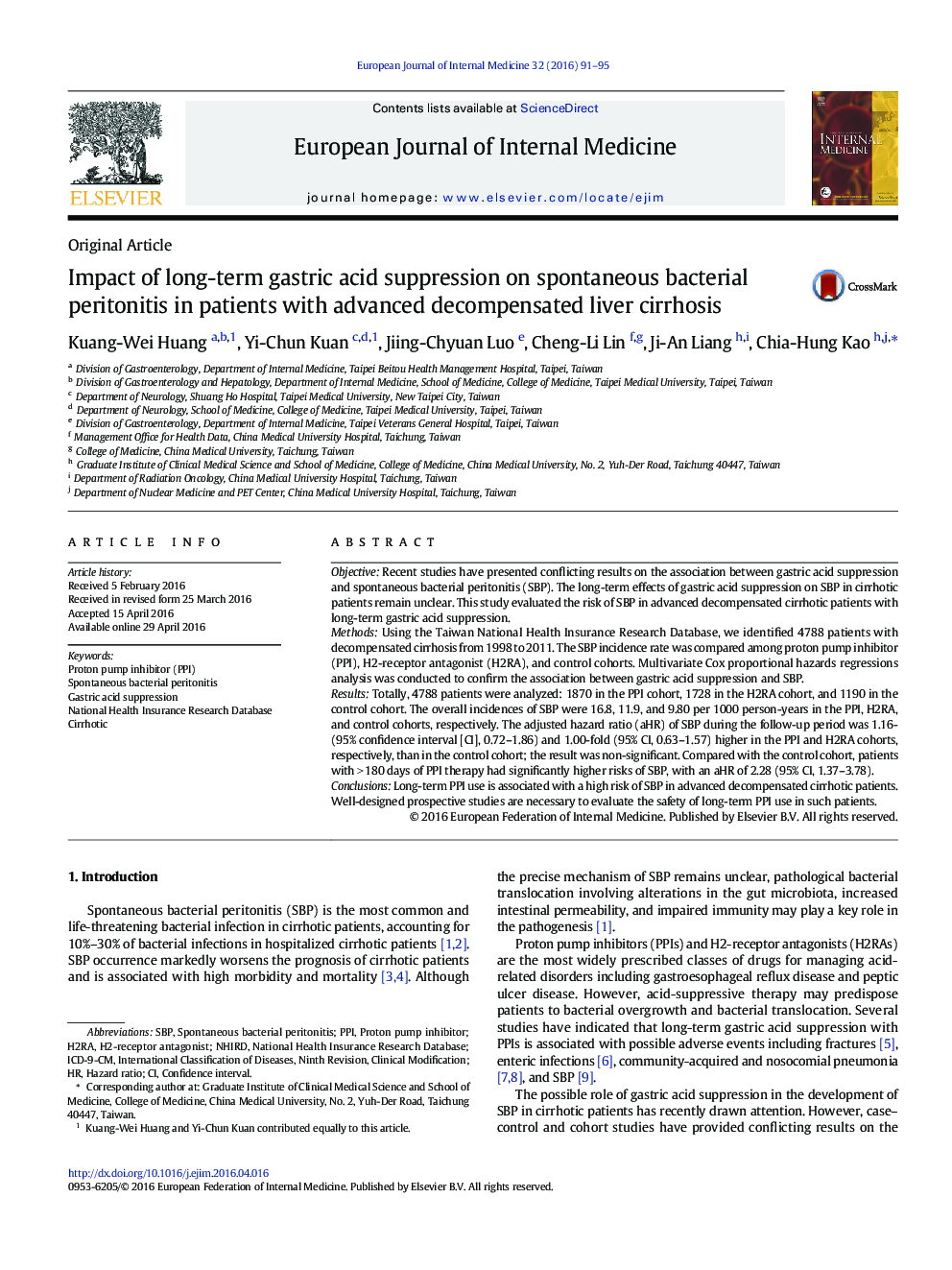| کد مقاله | کد نشریه | سال انتشار | مقاله انگلیسی | نسخه تمام متن |
|---|---|---|---|---|
| 3465944 | 1596534 | 2016 | 5 صفحه PDF | دانلود رایگان |
• The adjusted hazard ratio (HR) of SBP during the follow-up period was 1.16 and 1.00-fold higher in the PPI and H2RA cohorts.
• Compared with the control cohort, patients with > 180 days of PPI therapy had significantly higher risks of SBP.
• Long-term PPI use is associated with a high risk of SBP in advanced decompensated cirrhotic patients.
ObjectiveRecent studies have presented conflicting results on the association between gastric acid suppression and spontaneous bacterial peritonitis (SBP). The long-term effects of gastric acid suppression on SBP in cirrhotic patients remain unclear. This study evaluated the risk of SBP in advanced decompensated cirrhotic patients with long-term gastric acid suppression.MethodsUsing the Taiwan National Health Insurance Research Database, we identified 4788 patients with decompensated cirrhosis from 1998 to 2011. The SBP incidence rate was compared among proton pump inhibitor (PPI), H2-receptor antagonist (H2RA), and control cohorts. Multivariate Cox proportional hazards regressions analysis was conducted to confirm the association between gastric acid suppression and SBP.ResultsTotally, 4788 patients were analyzed: 1870 in the PPI cohort, 1728 in the H2RA cohort, and 1190 in the control cohort. The overall incidences of SBP were 16.8, 11.9, and 9.80 per 1000 person-years in the PPI, H2RA, and control cohorts, respectively. The adjusted hazard ratio (aHR) of SBP during the follow-up period was 1.16- (95% confidence interval [CI], 0.72–1.86) and 1.00-fold (95% CI, 0.63–1.57) higher in the PPI and H2RA cohorts, respectively, than in the control cohort; the result was non-significant. Compared with the control cohort, patients with > 180 days of PPI therapy had significantly higher risks of SBP, with an aHR of 2.28 (95% CI, 1.37–3.78).ConclusionsLong-term PPI use is associated with a high risk of SBP in advanced decompensated cirrhotic patients. Well-designed prospective studies are necessary to evaluate the safety of long-term PPI use in such patients.
Journal: European Journal of Internal Medicine - Volume 32, July 2016, Pages 91–95
